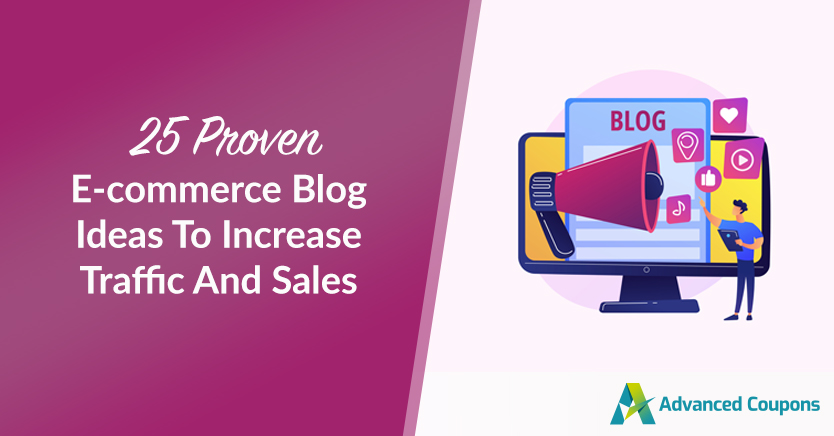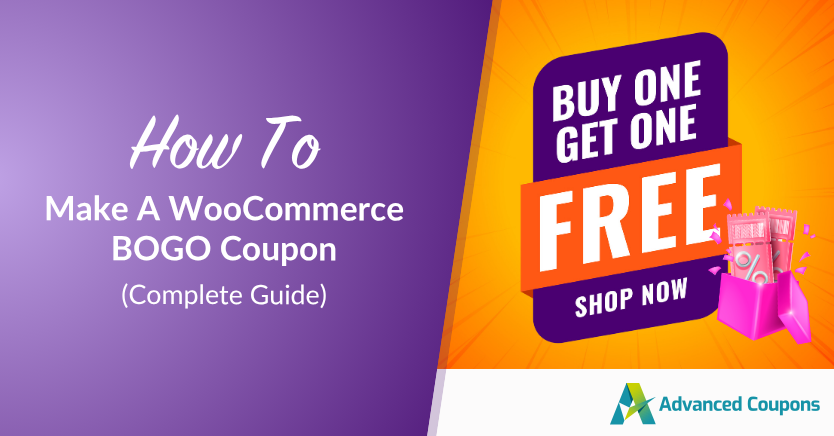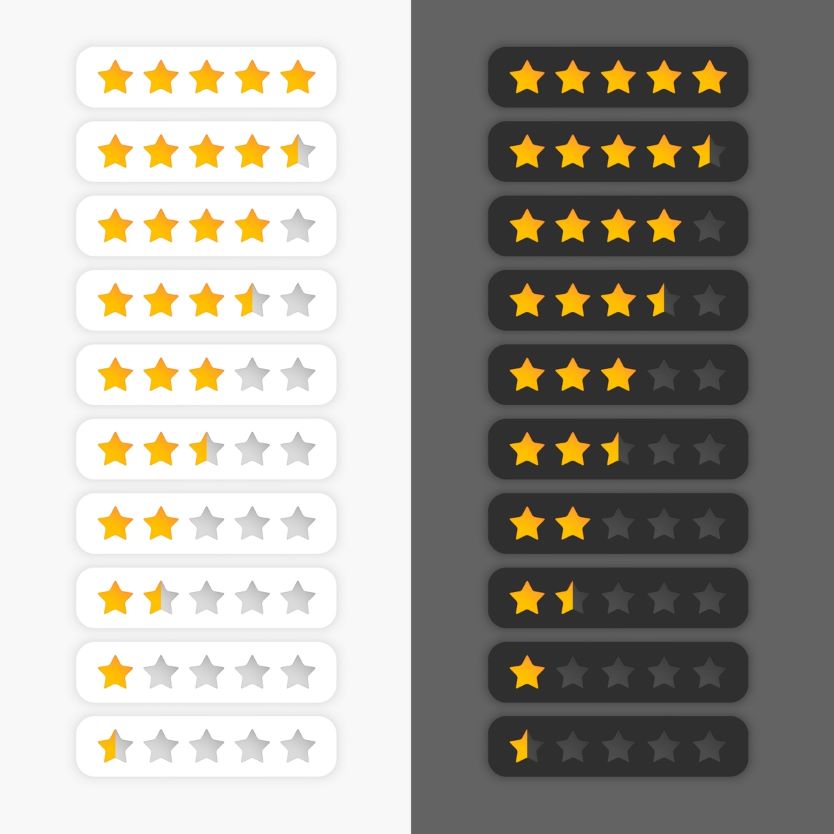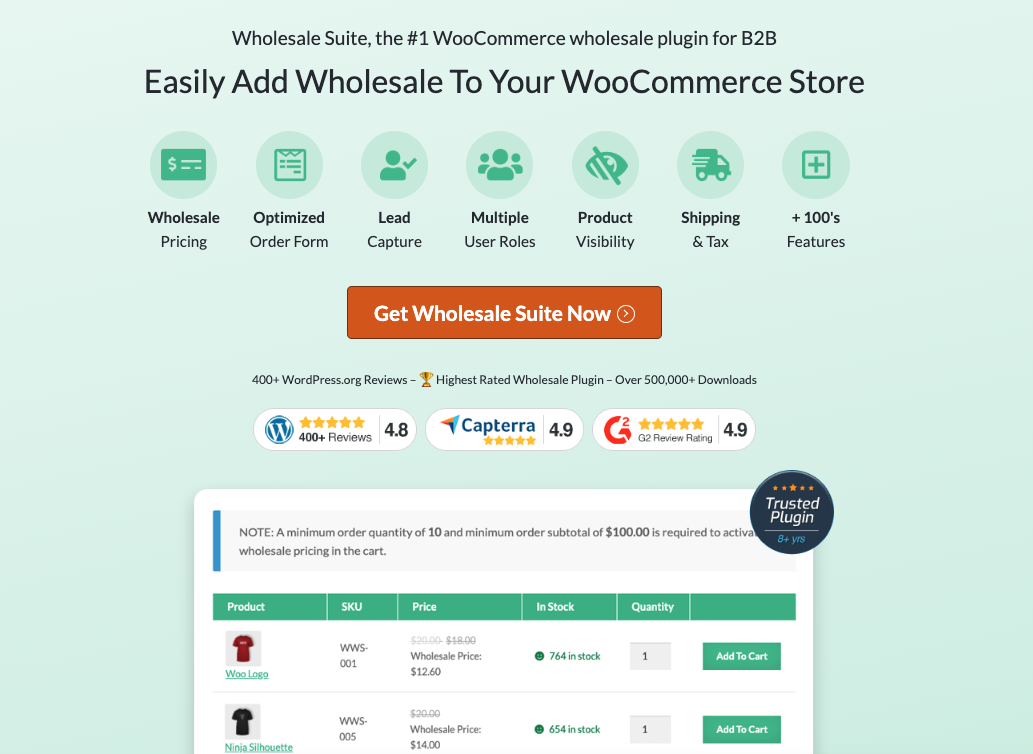
E-commerce blog ideas play a major role in your store. Creating and publishing blogs is a trusted marketing strategy regardless of business size. An E-commerce statistic for 2022 by WPForms emphasized that 61% of online purchases were influenced by blogs.
Last year, 48% of businesses used content in their marketing strategy according to the 2021 HubSpot Blog Research. Professional marketers used E-commerce blogging as it increases website traffic, promotes products, and most importantly, establishes trust.
As your followers increase, you need to come up with fresh content to satisfy your growing followers. From benefits to E-commerce blog examples, and product blog examples, we will help you get started with E-commerce blogging. Let’s get into it!
Why Are Good E-Commerce Blog Ideas Important For Your Store?
E-commerce blogging is important in a store’s growth and visibility online. It is a proven online practice that efficiently boosts your store. Below are other essential benefits to consider:
1. Blogs assist in driving traffic to your website
A published and well-crafted blog serves as an indexed page on your store. It means a good opportunity for your website to show up when a search is done by a customer. Your e-commerce blog will be displayed on the search engine results page and it will drive traffic through organic search.
To further increase your traffic, To further increase your traffic, make sure that the overall look of your blog is mobile-friendly, and that your website is using proper WordPress eCommerce plugins for optimized business growth.
2. You can use blog e-commerce blog content for social media
Publishing blogs in your store also creates content for social media.
Your customers can share them on Facebook, Twitter, LinkedIn, Pinterest, and other social media platforms. It efficiently introduces your store to new consumers and keeps your online presence strong.
Sharing your content is a great strategy according to the content marketing statistics by Optimonster. Facebook, for example, is used 74% for professional purposes such as promoting stores.
3. Blogs convert traffic into leads
E-commerce blogs produce traffic to your site which you can turn into leads.
Start this opportunity with a lead-generating call-to-action to your blog post. It may be a web link, text, or a button where a potential consumer can see more of your products.

Imagine when a new customer visits your website with a call-to-action button for a free offer. They can simply click it, take them to a landing page, fill in the form, submit, and get the free offer.
Take note that not all readers of your blogs will become leads. It is impossible to get 100% conversion to lead. Just continue posting blogs, attach call-to-action, and put a visitor-to-lead benchmark conversion rate. Check what works and try to strengthen the benchmark monthly.
4. Blogs produce long-term results
According to a statistic by Optimonster, blogs rank 5th as the most dependable source for getting information online. It establishes trust and creates connections with new buying consumers.
Consistently posting valuable E-commerce blogs and content in your store sets you apart from other online shops. It establishes your website as the authority for information. It also sets your store as an industry leader that can be trusted by every consumer.
5. News about your store, new products, and more can be shared through blogging
E-commerce blogs should also feature news about your store. Do you have a new product to launch? Share it on your blog!
Are you joining a trade show or local fair? Invite those near the area and bond with your buyers.
Sharing what’s up in your store through blogging creates a good connection with your buyers and new followers. It features the growth of your enterprise and buyers love to be part of it.
6. Blogs serve as a teaching tool for your consumers
Aside from introducing your latest product through blogs, you may use it as a teaching tool.
In product blog examples, you may include how-to-use, reliable reviews, and updates to match the needs of your consumers.
You may also promote product discussions, product knowledge sharing, and more with your customers. Be interactive using the comment section of your blog and learn healthy ideas from buyers.
E-Commerce Blog Ideas You Must Try
Now that you are familiar with the importance of publishing useful blogs in your store, it’s time to know e-commerce blog ideas to get you started:
1. Create an article on how your e-commerce business started
Be an inspiration to others by writing a blog on how you launched your store. Why did you start the business? What are your visions and missions? Include your photo and the team as an introduction to your brand. Add also the challenges you overcame when starting.
Posting an article about how your business started is a sincere way of introducing yourself to customers. It humanizes your store and creates a pleasant connection. Instead of seeing tabs and products, customers will be familiar with how you look. It can also mimic the warmth provided by physical stores.

2. Post a feature blog with your customer
Interview a loyal customer and ask them for a review of your product. Featuring a follower who makes their use of the item relatable to potential buyers. Their personal experience also plays a major role in the decision-making process of your new follower.
You can include what they liked and didn’t appreciate about your item. Then, add your detailed solution to satisfy their needs. Being sincere and honest with your blog will be appreciated by customers.
3. Make an article about the bundles you offer
Present your products in a blog that can be bought in a package. Feature each item first including its uses, benefits, and more. Then, display huge savings if they are purchased a bundle.
To increase the probability of them buying a bundle, write in detail how it will complement the other product when used. You may offer a money-back guarantee with certain conditions.
Thinking of getting a bundle for your E-commerce site? Advanced Coupons plugin has the best bundle to increase your productivity and sales. Visit our website to learn more.
4. Offer a giveaway of a new product
Be interactive with your customers by posting questions on your blog. Reward the best answer by giving a free product from your new line. In return, ask them to review and rate the gift. Upload their comments with photos using your new product.
Another good example of a giveaway is an e-book. Summarize the blogs on your site, give some tips on running your business, and compile anything that would increase their productivity.
5. Post customer reviews whether positive or negative
Transparency builds trust. Creating a blog featuring positive or negative reviews shows that you value the concerns of your customers. It lets you explain to your audience what went wrong and the quick response you made to correct the issue.
Writing reviews, whether positive or negative, also show that no business is perfect. An enterprise will eventually experience challenges. It’s how you react with a fast response that will show your preparedness to face concerns.
6. A collection of replies to interesting questions
FAQs may not answer all of your customers’ questions. With this, collect interesting concerns and make a blog about them. Respond to each in detail and thank them for asking.
The collected queries can also be used by future consumers that will have the same issues.
The blog displays your hands-on effort to please your consumers. It shows that you take the time to read every question. Making their voices heard creates trust and a good lasting relationship.
7. A guide for customers on how to incorporate your products with their lifestyle
Highlight the advantages of your product in a blog. Discuss how it can effortlessly match with their usual pieces. For better results, showcase their differences and make your product stand out.
Are you selling cosmetics? A good product blog example may feature your line that they can use in the office. Add points like its professional-looking while accentuating its beauty.
Products go well with a consumer’s lifestyle. Acknowledge their needs, create content for it featuring your item, and see your sales grow.
8. Discuss privacy issues in your E-commerce business and how you prevent them
Is there recent news about cyber security? Write blogs about breaches in privacy concerns and how they can affect your store. Narrate how you handle each effectively. Include also the preventive measures applied to secure your business and customers.
Security updates are appreciated by your customers.
It guarantees them a safe shopping experience while keeping their privacy details safe. You may also ask them to report any suspicious activity to establish trust.
9. Goodwill articles
Post your advocacies through blogs. Share your insights on special matters close to your heart. Indicate how your business contributes to your cause.
For example, your E-commerce blog post may include photos of an indigenous tribe that manufactures your products. Post their photos and explain that buyers are helping them earn income. You may also add that a percentage of sales goes directly to their medical needs.
Publishing heartwarming content introduces emotional connections with your followers. It shows your company is socially responsible for helping various causes.
10. How-to guides, tutorials, and recommendations
Talk about your product and explain in detail how to use them. Make it simple yet complete with information. Include its background, benefits, detailed tutorial on how to use it, and reviews from existing users. Customers love knowing more about your merchandise and services before buying.
Recommendations through blogging are also a proven strategy for introducing items to consumers. In 2017, 61% of customers in the United States bought items based on suggestions from their trusted blogs according to a content marketing statistic by the CMI.
Product blog examples about your recommendation can include before and after photos, what prompted you to use it, its difference from others available in the market today, and more.
11. Recent business news
Customers adore reading the latest news about the company of their favorite items. Update their curiosity through blogging and posting recent trends. E-commerce blog examples may include the next release for the season, the hottest trend to watch out for, what updates to expect, and more.
Linking news articles in your blogs is also a good idea. You may add your feedback, fair criticism, and opinion on the news. Ask for the comments of your buyers to make it interactive.
12. Debatable topics
Debatable and controversial topics are enjoyable to post. It’s newsworthy content but make sure to be fair and deliver your message wisely.
Comparing two items in your list is one of the best product blog examples. If you are selling skin care products, explain which one suits a specific skin type. You may also break down the ingredients as some may be allergic to them.
Ensure sincerity and honesty in the blog. Encourage a healthy discussion in the comment section and respect everyone’s opinion. Your customer will love how lively the discussion will be.
13. Relevant listicles
Listicles are the go-to for customers who want the best, the top, the most, and so on. The topics in listicles are unlimited and they can promote any of your items.
Aside from items, you may also post listicles about the top features of your products. You can rank them based on increased productivity, user-friendly, reliability, and value for money.
Speaking of increasing productivity, ease-of-use, dependability, and a great buy, check out Advanced Coupons. We offer the best WooCommerce coupon plugin for your store. You may also enjoy great support from our team of experts.
14. Interesting Profiles
Writing profiles of a celebrity and industry leader associated with your line is also one of the best E-commerce blog examples. It will make your product relatable and can increase your sales.
Include their biography, fun facts, and when they started using the product. You can also link articles of them talking about their benefits.
A statistic from Influencer Marketing Hub shows that 93% of professional marketers now use this strategy. Whether micro or mega influencers, the strategy is now key in advertising products and services.
15. Visually stimulating infographics
Infographics are striking and fun ways to present information about anything. It can be through charts, illustrations, diagrams, or any visually stimulating images that catch the attention of readers.
A well-crafted explanation must be included in the infographic. It must show reliable and relevant information that your customers can learn.
You may use Canva and other graphic design tools in creating infographics. Show your creativity and upgrade the visual content of your store.
16. Personal Interviews
Interviewing is the fastest way to get information. You may approach a random person on the street, show your online store with your products, ask what more to add, and their opinions. It will not be hard-selling, but more of collecting helpful feedback on your items. Make sure that the person is knowledgeable about your line.
You may also do this using social media. Send a private message to your followers and ask them what items they want to see more in your shop.
Collect the interviews and write a blog about them. Your customers will adore how important feedback is in how you choose your products. They will appreciate the hard work to keep your customers satisfied.
17. Expert’s opinion
An expert’s opinion is valued by anyone. Take advantage of their expertise by sending them messages through email, Twitter, and other social media platforms.
Make sure that it is a simple question that can be easily answered. Then, collect their response and make it an interesting article.
Again, your followers will love how resourceful you are. They will value your efforts in presenting articles that are worth reading.
18. Solutions to different challenges in using products
All products are not problem-free. Though tested, challenges may come and you may encounter questions regarding your items from buyers. With this, post articles about the challenges they may experience and back them with an easy solution.
Make sure to mention the advantages of the product outweigh the challenges. Show them that the problem can be solved easily. Also, you may provide easy access support where they can raise different concerns.
19. Inspirational stories
Everyone loves inspirational stories. It motivates us to dream, work hard, and achieve our goals. Start by narrating your personal story on how you started the business. What was your lifestyle before creating the store? Who are your first customers? How much money did you spend during the first month of operation?
You may also post articles about amazing people you look up to. Introduce them to your followers and spread an inspirational vibe in your store.
20. Show them what happens behind the scenes
Some or all of your followers consider you their hero. You created an enterprise using mentorship, skills, talent, and a lot of hard work.
Connect with your customers by posting behind-the-scenes articles. Show how you spend a day running your business. Give personal tips on how to have a work-life balance. List down your motivations. Narrate your dreams to expand the business.
Aside from humanizing your store, it can show your future expansion plans. With this, buyers can anticipate more products and services and they will continue to support your business.
21. Post funny articles
Funny articles can be an amusing breather for your store. If you are into pet supplies, you may post a blog about “The Top 10 most annoying dog breeds”. Though it sounds negative, it highlights the lovable characteristics of our beloved furry companions.
You can include hilarious photos that will melt anyone’s heart. Follow it up with interviews with the fur parents composed of witty questions.
Other funny E-commerce blog ideas include “How to look like a stressed clown” for cosmetic stores, “Best cake flavors for your grumpy mother-in-law” for bakeshop owners, “Top board shorts for your expanding waist” for beach apparel sellers, etc.
22. Things you learned from conferences
Expanding your enterprise means attending seminars and conferences to get updated with trends. Write a blog about your experience and share it with your buyers. Include the key points you learned from speakers. Also, add how you will apply them to the business.
Sharing upgrades to your business creates great connections with your customers. It shows that you are committed to elevating your store to satisfy your followers.
23. Sharing takeaways
Writing takeaways from a movie, book, or online course is a great e-commerce blog idea.
It shows that you’re not all about selling and you enjoy a “me” time. Buyers can also relate to the movie or book you finished. If you’re selling clothes, you can talk about the main character’s outfit and attach a link similar to what they are wearing.
You may advertise your food business by associating it with a feast in a movie. Is the book about hacking personal information? You can post a review and provide detailed instructions on how to avoid it.
24. Feature guest bloggers
Add spice to your blogs by featuring guest bloggers. Make sure first that they are familiar with your products. Though they offer different tones and styles, it will be a valuable collaboration that will make your blog section interesting.
Getting help from different bloggers also helps you during mental blocks. Credible writers have followers that you can turn into consumers.
25. Different business tools you use
Business improvements are crucial in maintaining your store.
There are readily available productivity tools that you can use to make your business grow. It can also make the buying experience of your customers fast and simple.
Write down recent changes in your shop. For example, make announcements through blogs that they can now buy wholesale items with great discounts. Show your followers that you value changes for better results.
Thinking of upgrading your business online?
Add Wholesale Suite, the #1 WooCommerce wholesale plugin for B2B! It offers a lot of exciting features that let you streamline your wholesale business and earn more profit.
Conclusion
The topics for e-commerce blog ideas are endless. It can be about your business, personal ideas, a customer’s experience, and more. Just think outside the box and let your creativity flow!
But to help you get started, here are 25 proven e-commerce blog ideas:
- Create an article on how your E-commerce business started
- Post a feature blog with your customer
- Make an article about the bundles you offer
- Offer a giveaway of a new product
- Post customer reviews whether positive or negative
- A collection of replies to interesting questions
- A guide for customers on how to incorporate your products with their lifestyle
- Discuss privacy issues in your E-commerce business and how you prevent them
- Goodwill articles
- How to guides, tutorials, and recommendations
- Recent business news
- Debatable topics
- Relevant listicles
- Interesting profiles
- Visually stimulating infographics
- Personal interviews
- Expert’s opinion
- Solutions to different challenges in using products
- Inspirational stories
- Show them what happens behind the scenes
- Post funny articles
- Things you learned from conferences
- Sharing takeaways
- Feature guest bloggers
- Different business tools you use
Do you have any questions about this article? Let us know in the comments!










Great article! Will try these blog ideas out!
Keep up the great work! Thank you so much for sharing a great posts.